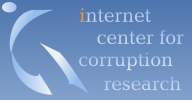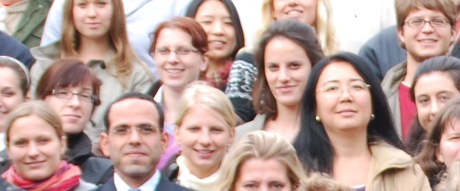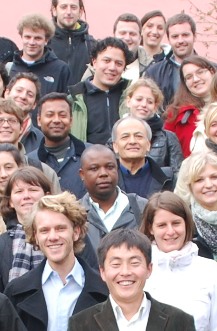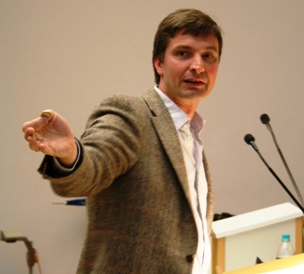
| Home → Lecture and Workshops → 2010 Passau |  |
|
|
Training and qualifying practitioners, researchers and students in anti-corruption is increasingly requested, utterly needed, but still in its infancy.
For many years now we developed a training program that fills this gap, joining the world of theory with the world of practice. An analysis of political,
economic and organizational incentives allows participants to obtain a profound understanding of the forces that are at play. Survey techniques and
statistical analysis confront theory with data. Interactive tools such as games, poster presentations and case studies involve participants
and make them acquainted with today's challenges. Prof. Johann Graf Lambsdorff and his team have spearheaded models for reform related to such issues as
contract penalties, compliance systems, debarment, procurement, leniency and corporate liability. Participants are introduced into this body of research.
This international event continues to be offered on a pro bono basis. It is directed towards anti-corruption policymakers and practitioners, as well as towards graduate and post-graduate students and faculty in the social sciences. |

Time: October 9-16, 2010
Program: The program is available here.
The event consits of 5 guest trainings from selected experts, case studies, games and poster presentations, and a dinner presentation. The whole event is free of charge. The course is restricted to successful applicants (information see below).
For registration please send an email to Mrs. Sabine Lang.
Venue: University of Passau, Germany
Requirements: Except for graduate students, all external participants must present a poster covering their latest research or findings from an anticorruption project. More information on the poster presentations is available here.
Prospective participants must apply by completing the application form. The application deadline is August 15, 2010. Please send your application to Mrs. Sabine Lang.
A limited number of 30 outstanding international candidates are allowed to participate. Excellence of applications is judged on the quality of the proposal submitted for the poster presentation. No limits are put on methodology or academic disciplines. Posters can be empirical, theoretical, experimental or practical.
While participation is free of charge, we do not provide funding for travel or lodging. Course material will be sold for 20 EUR and another 20 EUR will be collected for the dinner.
Exam: A final exam is offered on October 21, 2010, from 2-4 p.m. International students receive 3 ECTS credit points.
Accommodation: The City of Passau provides all ranges of accommodation. A list of selected hotels including prices and contact information is available here (Excel-File). You may also go the webpages of the Passau Tourist Information. Participants are asked to arrange accommodation on their own.
We are asking students from Passau to volunteer in making guest rooms at their apartments available. Please indicate your willingness to offer or request such an opportunity.
|
- Lambsdorff, J. Graf (2007) "The New Institutional Economics of Corruption and Reform: Theory, Evidence and Policy". Cambridge University Press
- Rajeev Goel, State University Illinois Empirical Approaches to Anticorruption
- Peter Graeff, University of Frankfurt am Main Trust and Corruption
- Michael Wiehen, Transparency International The TI Integrity Pact. This document captures the main topics of the presentation
- Yuvinalis Angima Kenya Anti-Corruption Commission The anatomy of corruption in the health care delivery sector in Kenya
- Vitus Adaboo Azeem Ghana Integrity Initiative Are the UNCAC, OECD Convention Working: The Maybey and Johnson Case
- Kristina Bouree PhD-Candidate, University of Prague Special Anti-Corruption Bodies: Brief Overview of Typology
- Gassendy Calice Economist at the statistics and planning section, Haiti Addressing Corruption Risk in Haitian Reconstruction after the Earthquake of January 2010
- Liljian Cherotich PhD-Candidate, Oxford University The influence of patronage networks on Kenya’s experience of corruption
- Jorge Finke, Faculty member at the Universidad Javeriana, Colombia Complex networks of corruption
- Stephanie Garvey USAID, Cambodia Million Signature Campaign - Anti-Corruption Effort
- Omer Gokcekus School of Diplomacy and International Relations; USA Business Cycles and Corruption
- Martin Handler Federal Bureau of Anti-Corruption, Austria Preventing Corruption - Educing preventive measures from the analysis of solved cases.
- Robert Kalensky Federal Bureau of Anti-Corruption, Austria Structures and Characteristics of the Austrian Bureau of Anti-Corruption - BAK
- Fabian Kannemann PhD-Candidate, University of Leipzig Corruption and Compensation (A Framework for an Agency Model of Controlling Corruption by Compensation)
- Elitza Katzarova Elkova PhD-Candidate, University of Trento The International Anti-Corruption Regime - From the FCPA to the OECD Anti-Bribery Convention and Beyond
- Julia Muravska Defence and Security Counter-Corruption Programme, Transparency International, London Corruption Risks of Offsets and Preventative Mechanisms
- Stephen Radido Advocate of the High Court of Kenya The First Mercantile Securities Corporation case and the issue of Mutual Legal Assistanc
- Sergio Rodríguez Investigation Coordinator for the Argentinian National Anti-corruption Office The Administrative Investigations Aoorney General's Office
- James Sitienei Kenya Anti-Corruption Commission, attorney Corruption in Kenyan Judiciary
- Maria Luisa Miralles Anti-Fraud Office of Catalonia Anti-Fraud Office of Catalonia - Prevention and Fight against Corruption
 To assure you we made the transfer, here is a scanned version of the invoice
To assure you we made the transfer, here is a scanned version of the invoice 

